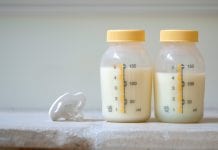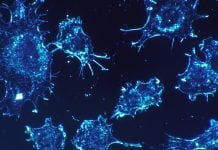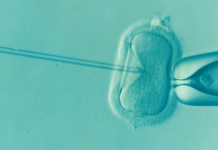Maternal Health Related News
Higher rates of miscarriage could be caused by oral antifungal drug
Published in CMAJ, new research has found that oral antifungal drug used to treat yeast infections is linked to higher rates of miscarriage.
A commonly...
ADHD risk factors increase with prenatal valproate exposure
According to Aarhus University Hospital, Denmark, valproate exposure during pregnancy is associated with increasing ADHD risk factors among offspring.
In a population-based study of 913,302...
Breast cancer risk remains high decades after childbirth
Scientists at the National Institutes of Health have found that contrary to previous knowledge, breast cancer risk remains elevated 20-30 years after childbirth.
Generally, women...
Natural selection in womb: can this explain adulthood health problems?
Researchers propose random epigenetic differences cause embryos to survive under adverse conditions, however survivors may experience adulthood health problems.
According to the international research team...
Rotavirus infection influenced by complex interactions in mother’s milk
Researchers have found that the sugars and microbiome in mother's milk influence neonatal rotavirus infection.
An international team of researchers from several institutions, used a...
Sperm count found to be 50% lower in sons of fathers who smoke
Research found that independent of nicotine exposure from mothers, sons of fathers who smoke had half as much sperm count compared to non-smoking fathers.
Many...
Trophoblast organoids for modelling of placental disorders
Researchers grew a three-dimensional organoid model of the human placenta – an achievement carrying significant implications for placental disorders.
Defective placentation is the underlying cause...
New WHO guidelines aim to reduce high caesarean section rates
First ever guidelines created regarding non-clinical interventions designed to reduce worldwide increase in caesarean section rates.
The World Health Organization (WHO) has designed new guidelines...
Womb inflammation may explain why some babies are prone to sepsis after birth
According to the American Journal of Pathology, infants are more likely to have sepsis after birth due to womb inflammation.
A new report highlights the...
Harmonising birth defects and cancer: research uncovers fine balance between cell survival and death
A recent study suggests that it is important to strike a healthy balance between too much cell death, which can lead to developmental abnormalities...
Evidence: soot from polluted air is reaching the placenta
New research presents evidence of tiny carbon particles, found in polluted air, discovered in the placenta of London mothers.
The European Respiratory Society International Congress,...
Gestational diabetes increases the risk of postpartum depression
A new Finnish study has established that mothers with gestational diabetes mellitus (GDM) have an increased risk of developing symptoms of postpartum depression.
The new...
Celebrating 40 years since the first test tube baby was born
Experts will gather to celebrate 40 years since the world’s first test tube baby conceived by IVF in Greater Manchester, UK, was born.
Louise Brown...
WHO and UNICEF promote breastfeeding in health facilities globally
This week, WHO and UNICEF have issued a new ten-step guide to boost support for breastfeeding in health facilities that provide maternity and newborn...
First-of-its-kind breastfeeding research centre to open
The University of Zurich (UZH), Switzerland, is planning to increase its research in the child and youth development area by creating a new centre...
Severe pre-eclampsia can mask hypertension after pregnancy
New research from the American Heart Association has found that women who have severe pre-eclampsia following pregnancy can have lingering hypertension which goes unnoticed.
Pre-eclampsia,...
Women suffer more with insomnia in late stage of pregnancy
A new study led by the University of Granada, Spain, has revealed that 64% of pregnant women suffer from insomnia in the third trimester...


















